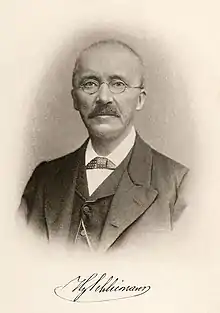1890
1890 (MDCCCXC) was a common year starting on Wednesday of the Gregorian calendar and a common year starting on Monday of the Julian calendar, the 1890th year of the Common Era (CE) and Anno Domini (AD) designations, the 890th year of the 2nd millennium, the 90th year of the 19th century, and the 1st year of the 1890s decade. As of the start of 1890, the Gregorian calendar was 12 days ahead of the Julian calendar, which remained in localized use until 1923.
| Millennium: | 2nd millennium |
|---|---|
| Centuries: | |
| Decades: | |
| Years: |
| 1890 by topic |
|---|
| Humanities |
| By country |
| Other topics |
| Lists of leaders |
| Birth and death categories |
|
| Establishments and disestablishments categories |
|
| Works category |
|
| Gregorian calendar | 1890 MDCCCXC |
| Ab urbe condita | 2643 |
| Armenian calendar | 1339 ԹՎ ՌՅԼԹ |
| Assyrian calendar | 6640 |
| Baháʼí calendar | 46–47 |
| Balinese saka calendar | 1811–1812 |
| Bengali calendar | 1297 |
| Berber calendar | 2840 |
| British Regnal year | 53 Vict. 1 – 54 Vict. 1 |
| Buddhist calendar | 2434 |
| Burmese calendar | 1252 |
| Byzantine calendar | 7398–7399 |
| Chinese calendar | 己丑年 (Earth Ox) 4586 or 4526 — to — 庚寅年 (Metal Tiger) 4587 or 4527 |
| Coptic calendar | 1606–1607 |
| Discordian calendar | 3056 |
| Ethiopian calendar | 1882–1883 |
| Hebrew calendar | 5650–5651 |
| Hindu calendars | |
| - Vikram Samvat | 1946–1947 |
| - Shaka Samvat | 1811–1812 |
| - Kali Yuga | 4990–4991 |
| Holocene calendar | 11890 |
| Igbo calendar | 890–891 |
| Iranian calendar | 1268–1269 |
| Islamic calendar | 1307–1308 |
| Japanese calendar | Meiji 23 (明治23年) |
| Javanese calendar | 1819–1820 |
| Julian calendar | Gregorian minus 12 days |
| Korean calendar | 4223 |
| Minguo calendar | 22 before ROC 民前22年 |
| Nanakshahi calendar | 422 |
| Thai solar calendar | 2432–2433 |
| Tibetan calendar | 阴土牛年 (female Earth-Ox) 2016 or 1635 or 863 — to — 阳金虎年 (male Iron-Tiger) 2017 or 1636 or 864 |
Wikimedia Commons has media related to 1890.
Events
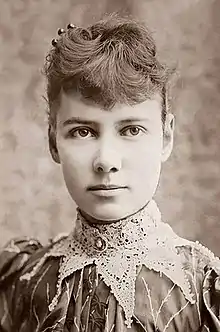
January 25: Nellie Bly, 1890
January–March
- January 1 – The Kingdom of Italy establishes Eritrea as its colony in the Horn of Africa.
- January 2
- The steamship Persia is wrecked off Corsica; 130 lives are lost.[1]
- Alice Sanger becomes the first female staffer in the White House.[2]
- January 11 – 1890 British Ultimatum: The United Kingdom demands Portugal withdraw its forces from the land between the Portuguese colonies of Mozambique and Angola (most of present-day Zimbabwe and Zambia).
- January 15 – Ballet The Sleeping Beauty, with music by Tchaikovsky, is premiered at the Imperial Mariinsky Theatre in St. Petersburg, Russia.
- January 25
- The United Mine Workers of America is founded.
- American journalist Nellie Bly completes her round-the-world journey in 72 days.
- February 5 – The worldwide insurance and financial service brand Allianz is founded in Berlin, Germany.[3]
- February 9 – The Weather Bureau is established within the United States Department of Agriculture.
- February 17 (possible date) – The British steamship Duburg is wrecked in the South China Sea; 400 lives are lost.[1][4]
- February 24 – Chicago is selected to host the Columbian Exposition.
- March 1 – The British steamship Quetia founders in the Torres Straits; 124 lives are lost.[1]
- March 3 – The first American football game in Ohio State University history is played in Delaware, Ohio, against Ohio Wesleyan.

March 4: Forth Bridge opened
- March 4 – The Forth Bridge, across the Firth of Forth in Scotland, is opened to rail traffic.
- March 8 – North Dakota State University is founded in Fargo.
- March 17 – The first railway in Transvaal, the Randtram, opens between Boksburg and Braamfontein in Johannesburg.[5][6]
- March 20 – Kaiser Wilhelm II dismisses Otto von Bismarck.
- March 27
- March 1890 middle Mississippi Valley tornado outbreak: 24 significant tornadoes are spawned by one system, killing at least 146 people.
- Preston North End retain the English Football League Championship, winning their final game at Notts County
- March 28 – Washington State University is founded in Pullman.
April–June
- April 2 – Kashihara Shrine, a landmark spot in Nara Prefecture, Japan, is officially built by Emperor Mutsuhito (Emperor of Meiji).[7]
- April 14 – At the First International Conference of American States, in Washington D.C., The Commercial Bureau of the American Republics is founded.
- May 1 – A coordinated series of mass rallies and one-day strikes is held throughout many cities and mining towns in Europe and North America, to demand an eight-hour workday.[8]
- May 2 – President Benjamin Harrison signs the Oklahoma Organic Act, under which Oklahoma Territory is organized, a prerequisite for later statehood.
- May 12 – The first ever official English County Championship cricket match begins in Bristol; Yorkshire beats Gloucestershire, by eight wickets.
- May 20 – Dutch artist Vincent van Gogh moves to Auvers-sur-Oise on the edge of Paris, in the care of Paul Gachet, where he will produce around seventy paintings in as many days.
- May 31 – The five-story skylight Arcade opens in Cleveland, Ohio.
- June 1 – The United States Census Bureau begins using Herman Hollerith's tabulating machine to tabulate census returns using punched card input, a landmark in the history of computing hardware. Hollerith's company eventually becomes IBM.
- June 16 – Royal Dutch Petroleum, predecessor of Royal Dutch Shell, the major worldwide energy production and sales company, is founded in the Netherlands to develop an oilfield in Pangkalan Brandan, North Sumatra.[9]
- June 20 – The Picture of Dorian Gray (by Oscar Wilde) is published by Philadelphia-based Lippincott's Monthly Magazine (dated July).
- June 27 – Canadian-born boxer George Dixon defeats the British bantamweight champion in London, giving him claim to be the first black world champion in any sport.[10]
July–September
- July 1
- Heligoland–Zanzibar Treaty: Britain cedes the Heligoland islands (in the German Bight) to Germany, in return for protectorates over Wituland and the Sultanate of Zanzibar (the islands of Pemba and Unguja) in east Africa.[11]
- 1890 Japanese general election: In the first general election for the House of Representatives of Japan, about 5% of the adult male population elect a lower house of the Diet of Japan, in accordance with the new Meiji Constitution of 1889.
- The Ouija board is first released by Elijah Bond.
- July 2 – The Sherman Antitrust Act and Sherman Silver Purchase Act become United States law.
- July 3 – Idaho is admitted as the 43rd U.S. state.
- July 10 – Wyoming is admitted as the 44th U.S. state.
- July 13 – In Minnesota, storms result in the Sea Wing disaster on Lake Pepin, killing 98.
- July 26 – In Buenos Aires, the Revolution of the Park takes place, forcing President Juárez Celman's resignation.
- July 27 – Death of Vincent van Gogh: van Gogh shoots himself, dying two days later.
- August 6 – At Auburn Prison in New York, William Kemmler becomes the first person to be executed in the electric chair.
- August 20 – Treaty of London: Portugal and the United Kingdom define the borders of the Portuguese colonies of Mozambique and Angola.
- August 23 – The BOVESPA stock exchange is founded in São Paulo, Brazil.
- August – Kaiser Wilhelm II and Tsar Alexander III meet at Narva.
- September 6 – Dublin association football club Bohemian F.C. is founded in the Gate Lodge, Phoenix Park.
- September 12 – Salisbury, Rhodesia, is founded.
- September 19
- The Turkish frigate Ertuğrul founders off Japan; 540 lives are lost.[1]
- The University of North Texas is founded, as the Texas Normal College and Teacher Training Institute.[12]
- September 25 — President Wilford Woodruff of the Church of Jesus Christ of Latter-day Saints issues the 1890 Manifesto ending the official practice of polygamy.
October–December

November: New Scotland Yard opens near the Big Ben clock tower.
- October 9 – The first brief flight of Clément Ader's steam-powered fixed-wing aircraft Ader Éole takes place in Satory, France. It flies uncontrolled approximately 50 m (160 ft) at a height of 20 cm (7.9 in), the first take-off of a powered airplane solely under its own power.[13][14][15]
- October 11 – In Washington, D.C., the Daughters of the American Revolution is founded.
- October 12 – The Uddevalla Suffrage Association is founded in Sweden, with a formal founding event on November 2 a month later.
- October 13 – The Delta Chi fraternity is founded by 11 law students at Cornell University in Ithaca, New York.
- November 4 – The first deep level London Underground (Tube) Railway, the City and South London Railway, opens officially.
- November 9 – British Royal Navy torpedo cruiser HMS Serpent (1887) is shipwrecked off Camariñas in Spain with the loss of 173 out of her crew of 176.[16]
- November 21 – Edward King, Anglican bishop of Lincoln, is convicted of using ritualistic practices.[17]
- November 23 – King William III of the Netherlands dies without a male heir, and his daughter Princess Wilhelmina becomes Queen, causing the end of the personal union of thrones with Luxembourg (which requires a male heir) so that Adolphe, Duke of Nassau becomes Grand Duke of Luxembourg.
- November 29
- The Meiji Constitution goes into effect in Japan, and its first Diet convenes.
- At West Point, New York, the United States Navy defeats the United States Army 24–0 in the first Army–Navy Game of college football.
- November – Scotland Yard, headquarters of the Metropolitan Police Service, moves to a building on London's Victoria Embankment, as New Scotland Yard.
- December 15 – Hunkpapa Lakota leader Sitting Bull is killed by police on Standing Rock Indian Reservation.
- December 27 – The British steamship Shanghai burns in the East China Sea off the coast of Anhui Province; 101 lives are lost.[18]
- December 29 – Wounded Knee Massacre: At Wounded Knee, South Dakota, a Native American camp, the U.S. 7th Cavalry Regiment tries to disperse the non-violent "Ghost-Dance" which was promised to usher in a new era of power and freedom to Native Americans but is feared as a potential rallying tool for violent rebellion by some in the U.S. government. Shooting begins, and 153 Lakota Sioux and 25 troops are killed; about 150 flee the scene. This is the last tribe to be defeated and confined to a reservation as well as the beginning of the decline of both the American Indian Wars and the American frontier.

University of Denver University Hall, built in 1890
Date unknown
- The folding carton box is invented by Robert Gair, a Brooklyn printer who developed production of paper-board boxes in 1879.
- The United States city of Boise, Idaho, drills the first geothermal well.
- Brown trout are introduced into the upper Firehole River, in Yellowstone National Park.
- High School Cadets is written by John Philip Sousa.
- William II of Prussia opposes Bismarck's attempt to renew the law outlawing the Social Democratic Party.
- Blackwall Buildings, Whitechapel, noted philanthropic housing, is built in the East End of London.
- English archaeologist Flinders Petrie excavates at Tell el-Hesi, Palestine (mistakenly identified as Tel Lachish), the first scientific excavation of an archaeological site in the Holy Land, during which he discovers how tells are formed.
- American geostrategist Alfred Thayer Mahan publishes his influential book The Influence of Sea Power upon History, 1660–1783.
- Francis Galton announces a statistical demonstration of the uniqueness and classifiability of individual human fingerprints.[19]
- Japanese tractor and iron pipe brand, Kubota founded in Osaka, Japan.[20]
- Emerson Electric, an American electronics industry giant, is founded in Missouri.[21]
Births
January
- January 1 – Anton Melik, Slovenian geographer (d. 1966)
- January 4
- Augustus Agar, British commodore, Victoria Cross recipient (d. 1968)
- Victor Lustig, Bohemian-born con artist (d. 1947)
- January 5 – Sarah Aaronsohn, member of the Jewish spy ring Nili (d. 1917)
- January 8 – Taixu, Chinese Buddhist activist (d. 1947)
- January 9
- Kurt Tucholsky, German-born journalist and satirist (d. 1935)
- Karel Čapek, Czech writer (d. 1938)
- January 11 – Oswald de Andrade, Brazilian Modernist writer (d.1954)
- January 13 – Jüri Uluots, 8th Prime Minister of Estonia (d. 1945)
- January 19 – Élise Rivet, French Roman Catholic nun and war heroine (d. 1945)
- January 20 - Boris Kozo-Polyansky, Russian botanist and evolutionary biologist (d. 1957)
- January 22 – Fred M. Vinson, Chief Justice of the United States (d. 1953)
- January 28
- Néstor Guillén, Bolivian politician, 40th President of Bolivia (d. 1966)
- Robert Stroud, Birdman of Alcatraz (d. 1963)
February
- February 10 – Boris Pasternak, Russian writer (Doctor Zhivago), Nobel Prize laureate (declined) (d. 1960)
- February 14 – Nina Hamnett, Welsh painter (d. 1956)
- February 15 – Matome Ugaki, Japanese admiral (d. 1945)
- February 16 – Francesco de Pinedo, Italian aviator (d. 1933)
- February 17 - Ronald Fisher, English statistician and geneticist (d. 1962)
- February 18
- Edward Arnold, American actor (d. 1956)
- Adolphe Menjou, American actor (d. 1963)
- February 24 – Marjorie Main, American actress (d. 1975)
- February 25
- Dame Myra Hess, English pianist (d. 1965)
- Kiyohide Shima, Japanese admiral (d. 1973)
- February 27
- Freddie Keppard, American jazz musician (d. 1933)
- Art Smith, American pilot (d. 1926)
March
- March 1 – Theresa Bernstein, Polish-born American artist and writer (d. 2002)
- March 4 – Norman Bethune, Canadian doctor and humanitarian (d. 1939)
- March 8 – Eugeniusz Baziak, Polish Roman Catholic archbishop (d. 1962)
- March 9 (new style) - Vyacheslav Molotov, Soviet politician (d. 1986)
- March 11 – Vannevar Bush, American engineer, inventor and politician (d. 1960)
- March 19 – Nancy Elizabeth Prophet, African-American artist known for her sculpture (d. 1960)
- March 20
- Beniamino Gigli, Italian tenor (d. 1957)
- Lauritz Melchior, Danish-American tenor (d. 1973)
- March 26 – Aaron S. Merrill, American admiral (d. 1961)
- March 28 – Paul Whiteman, American bandleader (d. 1967)
- March 31 – Lawrence Bragg, English physicist, Nobel Prize laureate (d. 1971)
April
- April 6 – Anthony Fokker, Dutch aircraft manufacturer (d. 1939)
- April 7 - Marjory Stoneman Douglas, American conservationist and writer (d. 1998)
- April 13
- Frank Murphy, American politician and Associate Justice of the Supreme Court of the United States (d. 1949)
- Dadasaheb Torne, Indian filmmaker (d. 1960)
- April 16
- Fred Root, English cricketer (d. 1954)
- Vernon Sturdee, Australian general (d. 1966)
- April 17 – Victor Chapman, French-American fighter pilot (d. 1916)
- April 18 – Grand Duchess Maria Pavlovna of Russia (d.1958)
- April 20
- April 26 – Edgar Kennedy, American comedic actor (d. 1948)
- April 30 – Géza Lakatos, 36th Prime Minister of Hungary (d. 1967)
May
- May 1 – Clelia Lollini, Italian physician (d. 1963)
- May 4 – Franklin Carmichael, Canadian landscape painter and graphic designer (d. 1945)
- May 10 – Alfred Jodl, German general (d. 1946)
- May 15 – Katherine Anne Porter, American author (d. 1980)
- May 19 – Ho Chi Minh, Prime minister/President of North Vietnam (d. 1969)
- May 23 – Herbert Marshall, English actor (d. 1966)
June
- June 1 – Frank Morgan, American actor (d. 1949)
- June 6
- Ted Lewis, American jazz musician and entertainer (d. 1971)
- Naomasa Sakonju, Japanese admiral and war criminal (d. 1948)
- June 10 – William A. Seiter, American film director (d. 1964)
- June 11 – Béla Miklós, 38th Prime Minister of Hungary (d. 1948)
- June 16 – Stan Laurel, English-born actor (d. 1965)
- June 17 – Hatazō Adachi, Japanese general (d. 1947)
- June 21 – Lewis H. Brereton, American aviation pioneer and air force general (d. 1967)
- June 25 – Charlotte Greenwood, American actress (d. 1977)
- June 26 – Jeanne Eagels, American actress (d. 1929)
- June 29
- Hendrikje van Andel-Schipper, Dutch supercentenarian (d. 2005)
- Pietro Montana, Italian-American sculptor, painter and teacher (d. 1978)
- June 30 – Paul Boffa, 5th Prime Minister of Malta (d. 1962)
July
- July 11 – Arthur Tedder, 1st Baron Tedder, British air force air marshal (d. 1967)
- July 18 – Frank Forde, 15th Prime Minister of Australia (d. 1983)
- July 19 – George II of Greece, King of Greece (d. 1947)
- July 20 – Verna Felton, American character actress (d. 1966)
- July 22 – Rose Kennedy, American philanthropist and matriarch of the Kennedy family (d. 1995)
- July 26
- Daniel J. Callaghan, American admiral and Medal of Honor recipient (d. 1942)
- Seiichi Itō, Japanese admiral (d. 1945)
- July 29 – P. S. Subrahmanya Sastri, Indian Sanskrit scholar (d. 1978)
August
- August 2 – Marin Sais, American film actress (d. 1971)
- August 3 – Konstantin Melnikov, Russian avant-garde architect (d. 1974)
- August 5 – Erich Kleiber, Austrian conductor (d. 1956)
- August 10
- Angus Lewis Macdonald, Nova Scotia Premier (d. 1954)
- Bechara El Khoury, 2-Time Prime Minister and 2-Time President of Lebanon (d. 1964)
- August 15
- Jacques Ibert, French composer (d. 1962)
- Elizabeth Bolden, American supercentenarian, last surviving person born in 1890 (d. 2006)
- August 18 – Walther Funk, German politician (d. 1960)
- August 20 – H. P. Lovecraft, American writer (d. 1937)
- August 22
- Hans-Joachim Buddecke, German World War I fighter pilot and ace (d. 1918)
- Cecil Kellaway, South African character actor (d. 1973)
- August 24 – Duke Kahanamoku, American swimmer (d. 1968)
September
- September 8 – Dorothy Price, Irish physician (d. 1954)
- September 9 – Colonel Sanders, American founder of KFC (d. 1980)
- September 10
- Elsa Schiaparelli, French couturiere (d. 1973)
- Sir Mortimer Wheeler, British archaeologist (d. 1976)
- September 15
- Agatha Christie, English writer (d. 1976)[22]
- Frank Martin, Swiss composer (d. 1974)
- September 20
- Jelly Roll Morton, American jazz pianist, composer and bandleader (d. 1941)
- Rachel Bluwstein, Israeli poet (d. 1931)
- September 21 – Max Immelmann, German World War I fighter ace (d. 1916)
- September 23
- Kakuji Kakuta, Japanese admiral (d. 1944)
- Friedrich Paulus, German field marshal (d. 1957)
- September 24 – A. P. Herbert, English humorist, novelist, playwright and law reform activist (d. 1971)
October
- October 1
- Stanley Holloway, English actor (d. 1982)
- Alice Joyce, American silent film actress (d. 1955)
- Blanche Oelrichs, American poet, second wife of John Barrymore (d. 1950)
- October 2 – Groucho Marx, American comedian (d. 1977)
- October 3 – Emilio Portes Gil, Mexican teacher, journalist, lawyer and substitute President of Mexico, 1928–1930 (d. 1978)[23]
- October 8
- Henrich Focke, German aviation pioneer (d. 1979)
- Eddie Rickenbacker, American race car driver and World War I fighter pilot (d. 1973)
- October 9 – Aimee Semple McPherson, Canadian-American Pentecostal Evangelist (d. 1944)
- October 13 – Conrad Richter, American novelist and short story writer (d. 1968)
- October 14 – Dwight D. Eisenhower, US general and 34th President of the United States (d. 1969)
- October 16
- Michael Collins, Irish patriot (d. 1922)
- Paul Strand, American photographer (d. 1976)
- October 17 – Roy Kilner, English cricketer (d. 1928)
- October 20 – Sherman Minton, American politician and Associate Justice of the Supreme Court of the United States (d. 1965)
- October 23 – Abdul Hamid Karami, 16th Prime Minister of Lebanon (d. 1950)
- October 25 – Floyd Bennett, American aviator and explorer (d. 1928)
- October 29 – Hans-Valentin Hube, German army general (d. 1944)
November
- November 4 – Saadi Al Munla, 17th Prime Minister of Lebanon (d. 1975)
- November 7
- Tomitarō Horii, Japanese general (d. 1942)
- Jan Matulka, American painter (d. 1972)
- November 9 – Grigory Kulik, Soviet military officer, Marshal of the Soviet Union (d. 1950)
- November 16
- George Seldes, American investigative journalist (d. 1995)
- Elpidio Quirino, 6th President of the Philippines (d. 1956)
- November 22 – Charles de Gaulle, President of France (d. 1970)
- November 23 – El Lissitzky, Russian artist and architect (d. 1941)
December
- December 5
- David Bomberg, English painter (d. 1957)
- Fritz Lang, Austrian-born film director, screenwriter and actor (d. 1976)
- December 6 – Dion Fortune, British occultist (d. 1946)
- December 8 – Bohuslav Martinů, Czech composer (d. 1959)
- December 10
- László Bárdossy, 33rd Prime Minister of Hungary (d. 1946)
- Henry Louis Larsen, American Marine Corps General; Governor of American Samoa and Governor of Guam (d. 1962)
- December 11 – Carlos Gardel, Argentine tango singer (d. 1935)
- December 17 – Prince Joachim of Prussia (suicide 1920)
- December 20 – Jaroslav Heyrovský, Czech chemist, Nobel Prize laureate (d. 1967)
- December 21 – Hermann Joseph Muller, American geneticist, recipient of the Nobel Prize in Physiology or Medicine (d. 1967)
- December 25 – Robert Ripley, American collector of odd facts (d. 1949)
- December 26 – Konstantinos Georgakopoulos, Greek lawyer and professor, 152nd Prime Minister of Greece (d. 1973)
- December 30 – Lanoe Hawker, British fighter pilot (d. 1916)
Date unknown
- Sava Caracaș, Romanian general (d. 1945)
- Hatı Çırpan, Turkish politician (d. 1956)
- Frederic Johnson, English civil servant (d. 1972)
Deaths
January–June
.jpg.webp)
King Amadeus I of Spain
- January 2 – Julián Gayarre, Spanish opera singer (b. 1844)
- January 7 – Augusta of Saxe-Weimar-Eisenach, Empress Consort of William I, German Emperor (b. 1811)
- January 18 – King Amadeo I of Spain (b. 1845)
- February 18 – Gyula Andrássy, Hungarian statesman, 4th Prime Minister of Hungary (b. 1823)
- February 22
- John Jacob Astor III, American businessman (b. 1822)
- Carl Heinrich Bloch, Danish painter (b. 1834)
- January 23 – Emily Jane Pfeiffer, Welsh poet and philanthropist (b. 1827)
- March 3 – Innocenzo da Berzo, Italian Capuchin friar and blessed (b. 1844)
- March 7 – Karl Rudolf Friedenthal, Prussian statesman (b. 1827)
- March 9 – Sir Mangaldas Nathubhoy, Indian politician (b. 1832)
- March 16 – Princess Zorka of Montenegro (b. 1864)
- March 23 – Mary Jane Katzmann, Canadian historian (b. 1828)
- April 1
- David Wilber, American politician (b. 1820)
- Alexander Mozhaysky, Russian aeronautical pioneer (b. 1825)
- April 4 – Pierre-Joseph-Olivier Chauveau, Canadian politician, 1st Premier of Quebec (b. 1820)[24]
- April 11
- David de Jahacob Lopez Cardozo, Dutch Talmudist (b. 1808)
- Joseph Merrick (The Elephant Man), British oddity (b. 1862)
- April 18 – Paweł Bryliński, Polish sculptor (b. 1814)[25]
- April 19 – James Pollock, American politician, Governor of Pennsylvania (b. 1810)
- May 22 – Eduard von Fransecky, Prussian general (b. 1807)
- June 1 – Camilo Castelo Branco, Portuguese writer (b. 1825)
- June 24 – Subba Row, Hindu theosophist (b. 1856)
- June 30 – Samuel Parkman Tuckerman, American composer (b. 1819)
July–December
- July 7 – Henri Nestlé, Swiss confectioner and the founder of Nestlé (b. 1814)
- July 9 – Clinton B. Fisk, American philanthropist and temperance activist (b. 1828)
- July 13
- John C. Frémont, American explorer and military officer (b. 1813)
- Johann Voldemar Jannsen, Estonian journalist and poet (b. 1819)
- July 15 – Gottfried Keller, Swiss writer (b. 1819)
- July 25 – Shaikh Mohamed bin Khalifa bin Salman Al Khalifa, Ruler of Bahrain (b. 1813)
- July 29 – Vincent van Gogh, Dutch painter (b. 1853)
- August 6 – William Kemmler, American murderer, first person executed in the electric chair (b. 1860)
- August 10 – John Boyle O'Reilly, Irish-born poet, journalist and fiction writer (b. 1844)
- August 11 – John Henry Newman, English Roman Catholic Cardinal (b. 1801)
- August 27 – Juan Seguín, American soldier and politician (b. 1806)
- October 4 – Catherine Booth, Mother of The Salvation Army (b. 1829)
- October 17 – Julian Gutowski, Polish politician (b. 1823)
- October 20 – Richard Francis Burton, English explorer, linguist, soldier (b. 1821)
- October 26 – Carlo Collodi, Italian writer (The Adventures of Pinocchio) (b. 1826)
- November 3 – Ulrich Ochsenbein, member of the Swiss Federal Council (b. 1811)
- November 4 – Félix du Temple de la Croix, French Army Captain & aviation pioneer (b. 1823)
- November 7 – Comanche, American horse, survivor of Custer's cavalry at the Battle of the Little Bighorn
- November 8 – César Franck, Belgian composer and organist (b. 1822)
- November 11 – Marie-Charles David de Mayréna, French adventurer and self-styled King of Sedang (b. 1842)
- December 21 – Sherman Conant, American soldier and politician (b. 1839)
- November 23 – King William III of the Netherlands (b. 1817)
- November 24 – August Belmont, Sr., Prussian-born financier (b. 1816)
- December 15 – Sitting Bull, Native American chief (b. c. 1831)
- December 21 – Johanne Luise Heiberg, Danish actress (b. 1812)
- December 23 – Alphonse Lecointe, French general and politician (b. 1817)
- December 26 – Heinrich Schliemann, German archaeologist (b. 1822)
- December 31 – Pancha Carrasco, Costa Rican war heroine (b. 1826)
References
- "Many Great Liners Paid Toll Of The Sea; Republic Was First to Utilize the Wireless in Calls for Aid" (PDF). The New York Times. April 16, 1912. Archived (PDF) from the original on October 9, 2022. Retrieved September 14, 2011.
- "This Day in History: 1890". History.com. A&E Television Networks. Archived from the original on February 9, 2010. Retrieved October 27, 2009.
- Werner Meyer-Larsen (2000). Germany, Inc: the new German juggernaut and its challenge to world business. John Wiley. p. 130. ISBN 9780471353577. Retrieved July 16, 2013.
- "A Steamer and 400 Lives Lost". Otago Times. January 17, 1890. Retrieved May 6, 2012.
- The South African Railways – Historical Survey. Editor George Hart, Publisher Bill Hart, Sponsored by Dorbyl Ltd., Published c. 1978.
- Statement Showing, in Chronological Order, the Date of Opening and the Mileage of Each Section of Railway, Statement No. 19, p. 182, ref. no. 200954-13
- "Asuka Area, Nara". Iwate University. Retrieved January 1, 2019.
- Hermann, Christoph: Capitalism and the Political Economy of Work Time, p. 113
- Merrillees, Scott (2015). Jakarta: Portraits of a Capital 1950–1980. Jakarta: Equinox Publishing. p. 60. ISBN 9786028397308.
- "Dixon, George (Little Chocolate)". Dictionary of Canadian Biography Online. University of Toronto; Université Laval. 2000. Retrieved January 23, 2012.
- Palmer, Alan; Veronica (1992). The Chronology of British History. London: Century Ltd. pp. 317–318. ISBN 0-7126-5616-2.
- "History of UNT | 125th Anniversary". 125.unt.edu. Retrieved April 5, 2017.
- Crouch, Tom D. "Clément Ader". Encyclopædia Britannica. Retrieved March 3, 2011.
- Gray, Carroll (1998–2003). "Clement Ader 1841–1925". Flying Machines. Retrieved March 3, 2011.
- Gibbs-Smith, Charles H. (1959). "Hops and Flights: A Roll Call of Early Powered Take-offs". Flight. 75: 468. Retrieved March 3, 2011.
- "The Loss of H.M.S Serpent" (PDF). The Engineer. London. November 14, 1890. p. 398. Archived (PDF) from the original on October 9, 2022.
- "Read And Others V. The Lord Bishop Of Lincoln: Court Of The Archbishop Of Canterbury, Lambeth Palace, Nov. 21". The Times. No. 33176. London. November 22, 1890. p. 4.
- "Two Hundred Drowned – Panic among the Chinese on the burned steamer Shanghai" (PDF). Archived (PDF) from the original on October 9, 2022.
- Galton, Francis (1891). "The Patterns in Thumb and Finger Marks – On Their Arrangement into Naturally Distinct Classes, the Permanence of the Papillary Ridges that Make Them, and the Resemblance of Their Classes to Ordinary Genera". Philosophical Transactions of the Royal Society B. 182: 1–23. doi:10.1098/rstb.1891.0001. JSTOR 91733.
- "1890 › 1926". Kubota Virtual Museum. Retrieved March 16, 2023.
- "Emerson Company History". emerson.com. Emerson Electric. Retrieved March 4, 2021.
- "Agatha Christie | Britannica". www.britannica.com. Retrieved February 18, 2022.
- "Emilio Portes Gil" (in Spanish). Busca Biografias. Retrieved May 31, 2019.
- http://www.biographi.ca/en/bio/chauveau_pierre_joseph_olivier_11E.html
- "Brylinski Pawel". Astro-Databank. Retrieved November 13, 2021.
Further reading and year books
- 1890 Annual Cyclopedia online; highly detailed coverage of "Political, Military, and Ecclesiastical Affairs; Public Documents; Biography, Statistics, Commerce, Finance, Literature, Science, Agriculture, and Mechanical Industry" (1891); compilation of facts and primary documents; worldwide coverage.
This article is issued from Wikipedia. The text is licensed under Creative Commons - Attribution - Sharealike. Additional terms may apply for the media files.


.jpg.webp)
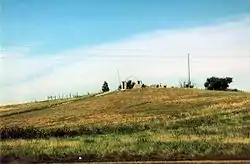
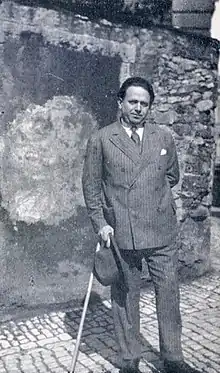
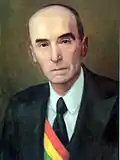
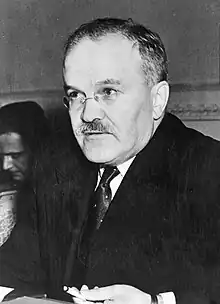
.jpg.webp)
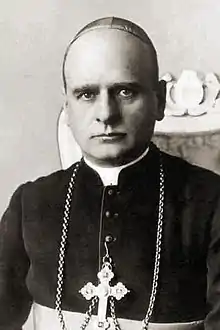
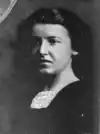


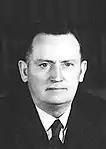

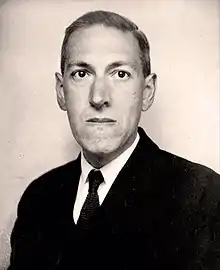


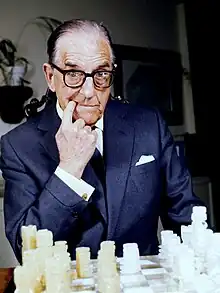


.jpg.webp)


-(c).jpg.webp)

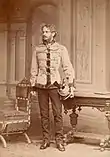

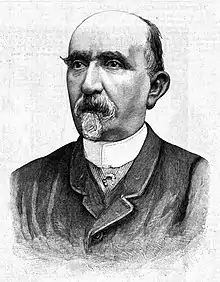
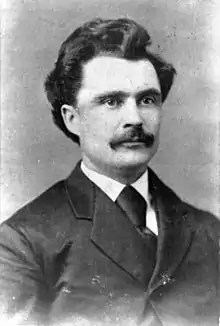
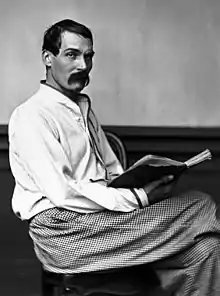
%252C_koning_der_Nederlanden%252C_Nicolaas_Pieneman%252C_1856_-_Rijksmuseum.jpg.webp)
